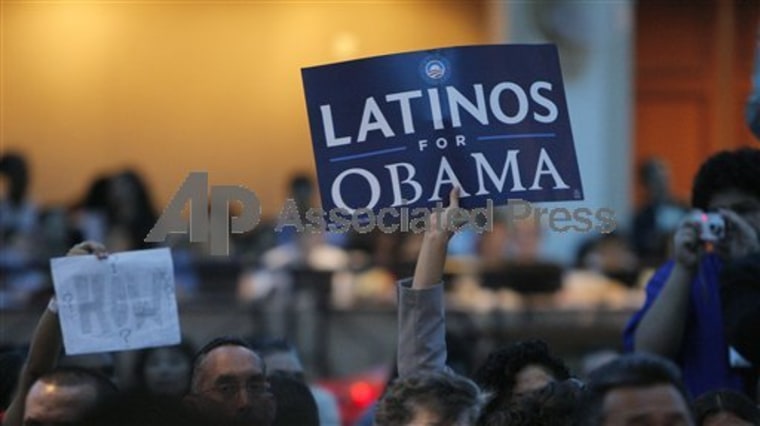In my lifetime, two bellwether moments have put on display the high cost of ignoring a new emerging majority of American voters.
In the 1990s, California Governor Pete Wilson architected Proposition 187 -- a bill that targeted immigrant communities and attempted to prohibit access to public and social services to huge swaths of the population.
The effort famously backfired, and Wilson’s political career ended unceremoniously.
Laws like Prop 187 weren’t just politically unpalatable, they were squarely at odds with the values of most American voters. In short, the law didn’t fail because it was anti-immigrant or anti-Latino. It failed because it was anti-American.
This election provided the second, and bigger, revelation. The long-promised arrival of Latino voters -- young, passionate about leaving their mark on our political system, hungry for a fair shot --- this year, these voters made an undeniable impact on an election. And in the process, they secured a legacy that’s been a long time coming.
While some candidates, like Texas Senator-elect Ted Cruz, are representing our community in the Republican Party, they are a distinctly smaller cohort than the numbers that are surging to power in the Democratic Party. The disparity spills over from the pool of elected officials into the pool of voters that elected them. Nearly 70% of Latino voters nationwide cast their vote for Barack Obama over Mitt Romney. Down ballot, the results were similarly lopsided.
This is the cost of magical thinking: that policies and rhetoric that fail to promote equality will produce anything but unequal results. That Republican Latino outreach needs work is no secret. That it cost them an election wasn’t impossible to predict. But could it cost them an entire generation of American voters?
After years of building programs that empower young people in our communities to claim better futures by voting, this election vindicates our efforts, but more importantly, shows that those communities that haven’t historically been politically active can be engaged.
When they’re turned on, these voters provide a fuller, more accurate picture of the American electorate. When they participate, they reward fundamental American values and bold, forward-looking platforms. Plain and simple: they vote for themselves.
Gov. Wilson’s Prop 187 was the beginning of the end of the California Republican Party. This year, California Republicans find themselves in the unenviable position of being the super-minority party. Their Democratic colleagues in the state legislature don’t need their support to pass a single bill.
More than 20 years of elections in California have come to reflect that changed electorate. And so, too, do this year’s contests at a national level show the electorate -- younger and less Caucasian than ever before -- favors policies and politicians that embrace the American future these voters represent.
Where these voters will direct their energies next isn’t set in stone, but it’s not impossible to guess. In Texas, California, Florida, Wisconsin, Arizona, and many more states, Latinos decided elections this year. That’s the future. Denying it at this point is political malpractice. And whichever party or group can marshal this energy will go a long way to winning that future by building the relationships and trust right now. We’re looking at a once-in-a-generation moment of awakening. Pretending it isn’t happening is no longer an option.
This election shows a clear path forward for leaders who seek to drive values-based agendas into power. Republicans, shellacked in the polls and reeling, have a genuine opportunity to change tone and change course. It’s not magic, it’s math. And it’s here to stay.
